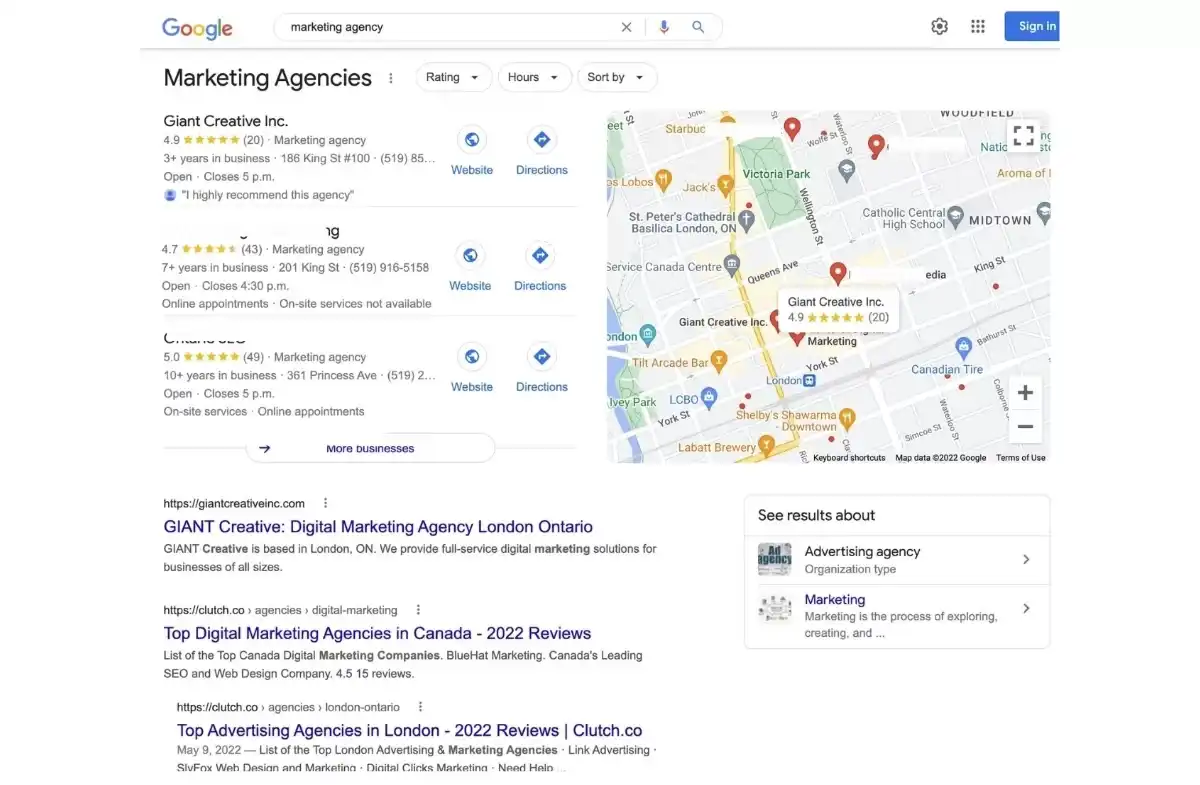
In the past few years, adopting Local SEO vs Global SEO has been the common question of many digital marketing agencies.
Each SEO strategy has its own pros and cons, and you should know the difference between the two to pick the most suitable for your clients.
So, let’s get started with their definition!
The similarities between Local SEO and Global SEO
At the end of the day, these two are about Search engine optimization, so they both share a lot of common tactics:

Technical SEO
Every SEO strategy starts with a technical SEO audit. At this stage, webmasters want to make sure that websites are SEO-friendly. The common places to look at are:
- Crawling
- Discoverability
- Indexing
- Core Web Vitals
- Speed
- Internal Linking
- URL structure
- Page Depth
- etc.
What is the main difference?

Keyword research
Keyword research should be the most important part of your SEO strategy because if not done right, all of your later SEO efforts won’t produce results!
Both Local SEO and Global SEO keyword research are about finding keyword opportunities that a website can rank for with reasonable resources
Local SEO
For Local SEO, you are looking more at keywords with local intents.
For example, “restaurant near me” is a local keyword. The phrase “near me” guides search engines to return results that are relevant to the searchers’ location.
You don’t want to see the top restaurants in the world when you are searching for alocal restaurant for dinner!
These are direct local keywords, which often contain “near me”, “city name” or “town name” in the search query.
Some other examples can be more indirect, but still pull a local SERP to users such as “marketing agencies”, “printing services”, and “photography companies”. These queries don’t include any local keywords in the query, but they will still trigger different SERPs based on users’ location.
Google is getting smarter to figure out whether a user is looking for local results or global results without direct instructions of “near me” or “city name”.
When searching for “printing service”, are you looking for a place near you where you can come and get your documents printed? Or do you want to see foreign printing companies in your SERP? You tell me!
Global SEO
Keyword research for global SEO is more about targeting keywords that will return the same results regardless locations of the searchers.
For example, “how to do linking building”, “what is marketing”, “email marketing for beginners”, etc.
These keywords don’t include any specific locations. And the intents behind these queries are the same regardless of the searchers’ location.
In other words, there there is little or no difference between the definition of “marketing” in Toronto and London. So, you should see the same results from both cities.

Link building
Backlinks is no doubt one of the most important ranking factors. Both local and global SEO need to have a well-planned link-building strategy to actually bring in SEO results.
The importance of Geographical Relevance
You want to build more backlinks from geographically relevant entities than national or international websites. I’m not saying a backlink from Forbes is worse than a backlink from a local business directory.
However, if you want to rank well for your keywords in your city, it makes more sense to be known in your community – virtually. If you are in Toronto for example, you want to have backlinks from Toronto’s local newspapers, Ontario business directory, Canadian websites, etc.
Tips: Associating your website with these local entities with outgoing links also help Google categorize your website as locally relevant to these websites.

Google Maps
Local SERPs often (90% of the time) trigger a Google Map Pack above the organic results while global searches don’t. The Map Pack is the result of the search queries performed inside Google Maps. But only the top 3 results will be embedded in the main search results. These results get more than 30% of clicks on average.
So, in a comprehensive Local SEO strategy, marketers must take Google Maps (Google Business Profile) optimization into account as well.

Most local searches are performed on smartphones, according to …, there are … So, you would want to have a mobile-first approach when it comes to optimizing your web pages. You want to bring the best mobile UX to your website visitors.
Local SEO vs Global SEO: The bottom line
Google’s algorithm is getting more intelligent in understanding search intents, so it can return the most valuable and relevant results to users.
Most local businesses like beauty salons, restaurants, construction companies, and HVAC businesses would need a customized local SEO strategy. Whereas niche sites, blogs, affiliate websites, or even publishers will require more traditional SEO efforts.
Keep in mind that every client is different, and you must understand their business to provide the most value to them.



